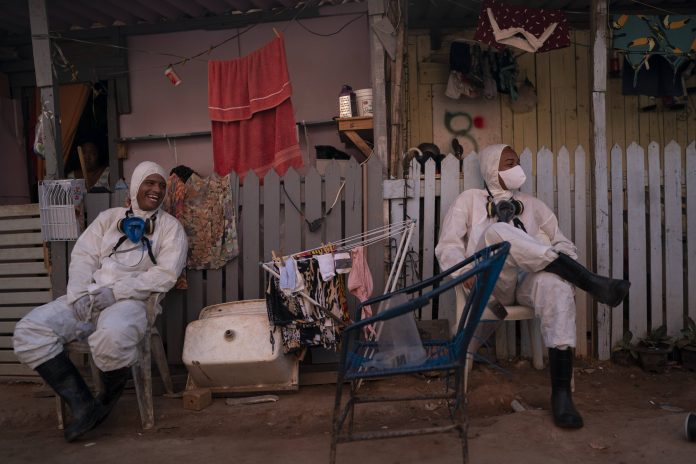
The Brazilian government announced on Saturday an agreement with Oxford University and pharmaceutical company AstraZeneca to produce a promising coronavirus vaccine that is undergoing tests.
Brazilian Health Ministry authorities said at a news conference that the country will pay $127 million and receive material to produce 30.4 million doses in two batches in December and January, which would allow it to quickly start inoculation efforts if the vaccine is certified to be safe and effective.
They said the total deal is for 100 million vaccines for a country of about 210 million residents. It will be produced by local vaccine maker Fiocruz.
Vijay Rangarajan, the British ambassador, said on Twitter that “the 30 million doses will be available in Brazil” and Fiocruz will “prepare for local production,” without making reference to the promised additional 70 million doses. The British Embassy said in a statement that “the 70 million will come in a second moment,” without giving more details.
Fiocruz said in statement that it still had to reach a deal with AstraZeneca for the transfer of technology of the vaccine if it works. “After the production (of the shots), it will still be necessary (to follow) phases of registry and validation before a possible distribution,” it said.
Fiocruz added it will be possibly responsible for producing the vaccine for the rest of Latin America.
The Brazilian government said the first to get the Oxford shot would be high-risk groups such as the elderly, people with comorbidities and health and security professionals.
Arnaldo Correia de Medeiros, secretary of health surveillance, said distribution will be fast because of Brazil’s public health care system. “This country has extensive experience in extremely fast vaccination”, he said.
British researchers started testing the experimental shot in May aiming to immunize more than 10,000 people, including older people and children. The vaccine is one of about a dozen in the early stages of human testing.
Brazil, where coronavirus infections are still on the rise, counts more than 1 million confirmed cases and more than 55,900 fatalities.
The British ambassador told The Associated Press on Tuesday that the vaccine maker has the capacity to produce 2 billion doses in its first batch, which is expected by the end of the year, but said that much of the global production was already purchased.On May 21, the United States announced a deal for at least 300 million doses of the Oxford shot and committed up to $1.2 billion to the effort. On June 13, AstraZeneca agreed to supply up to 400 million doses of the experimental vaccine to European Union nations. Other negotiations are ongoing with Russia and Japan, among other countries, the company’s CEO said this month.
Another experimental vaccine in development by Chinese company Sinovac Biotech will be tested in Brazil in July, according to the Sao Paulo state government. Sinovac has a deal with the state’s Instituto Butantan to produce it. Some 9,000 Brazilians are expected to participate.
The World Health Organization’s chief scientist, Soumya Swaminathan, said Friday that AstraZeneca’s experimental vaccine is probably the world’s leading candidate and most advanced in terms of development.



















